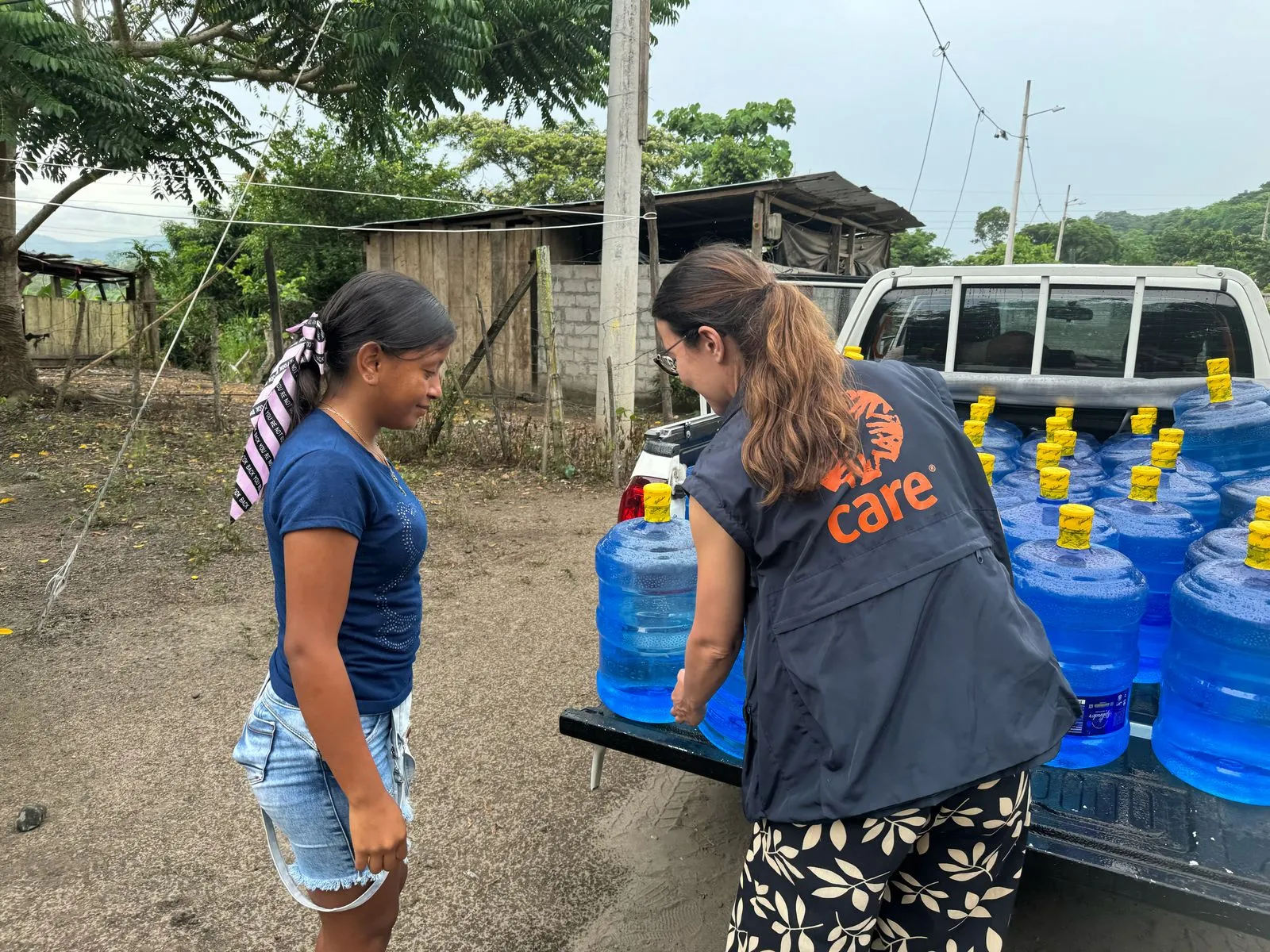Quito, Ecuador, April 9, 2025 – Weeks after an oil pipeline burst in northern Ecuador’s Esmeraldas province, the far-reaching humanitarian and ecological disaster continues to disrupt the region. The oil spill, the worst in the country’s history, has cut off safe drinking water for half a million residents, triggered a public health crisis and deepened the struggles of an already vulnerable population. Agriculture, fishing, and tourism—key pillars of the local economy—are also reeling from the impact.
“The most pressing issues are providing safe drinking water to the population, keeping medical facilities equipped and running, deploying medical teams to bring services to the population, and recovering livelihoods.” says María Moreno de los Ríos, CARE Country Director in Ecuador.
“Coastal women are especially affected by this disaster. They gather shellfish, or cockles, from mangrove forests for a living and are the de facto protectors of this fragile and protected ecosystem. The oil spill is not only threatening their livelihoods but also increasing their risk of developing skin rashes, as well as respiratory and gastrointestinal problems because of their exposure to contaminated river water.”
The pipeline that burst is part of the Trans-Ecuadorian Pipeline System (SOTE) and, according to a statement released by the country’s national disaster management agency, it has spilled over 25,000 barrels of oil. Crude oil has flowed downstream for more than 50 miles and reached the Pacific Ocean, while contaminating three rivers, nine beaches, mangrove forests, and large swaths of agricultural land. The government has declared a state of emergency in the province.
Esmeraldas, a province that borders Colombia, is one of the poorest and most neglected areas of the country, where 70 percent of the population lives in poverty, with high unemployment, and of insecurity. One in five children is malnourished, a situation likely to worsen due to water shortages and crop failures. Violence against women and girls is especially high in Esmeraldas, exacerbating existing inequalities. The economic impact of the oil spill is already increasing their vulnerability to exploitation and violence, which requires targeted interventions and resources.
Forty percent of the population in Esmeraldas identifies as Afro descendants. This is a culturally vibrant area with strong community structures, especially among women, a reality that has prompted emergency response experts to recommend that any intervention in the affected area be developed and carried out in close partnership with local organizations. On the ground, CARE is working with Fundación Lunita Lunera (FULULU), a reputable and respected local organization that focuses on women.
“The sooner we act to offset the damages caused by the oil spill, the better,” says Falete Luque, National Program Coordinator for FULULU in Esmeraldas. “Cleaning the rivers swiftly is essential as they are the primary source of drinking water for residents. River water is also used to irrigate crops and for animals. Not to mention that rivers are also a playground for children, which means their health is very much at risk.”
CARE is working with local partners to increase access to potable water, distribute hygiene kits to women and men, and bring emergency medical services to affected populations to address health problems caused from water pollution to the most vulnerable populations like children, women, and the elderly. CARE also provides psychosocial and mental health support. This work is coordinated alongside local authorities and local and international partners.
“As CARE, we are doing all we can to support the social and environmental recovery efforts on the ground,” says Moreno de los Rios, “But the reality is that over half a million people in Esmeraldas will need assistance for the next 12 months. Now they need clean water, health, and other emergency services, but in the long-term they will need seed capital to rebuild their lives from scratch.”
For media inquiries, email usa.media@care.org

